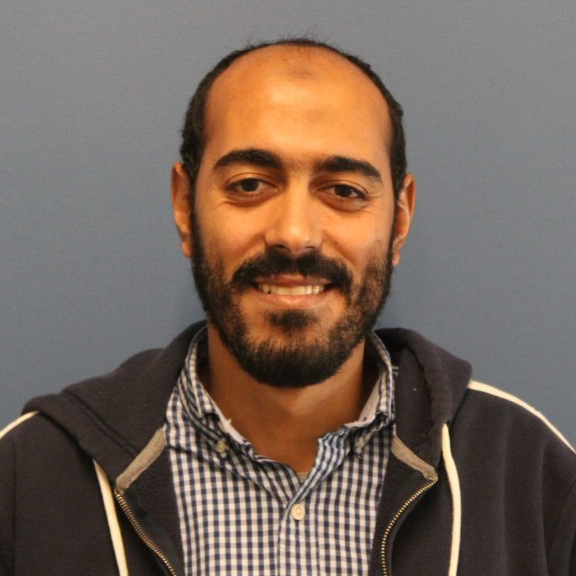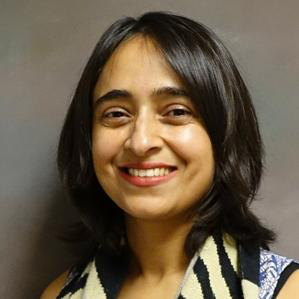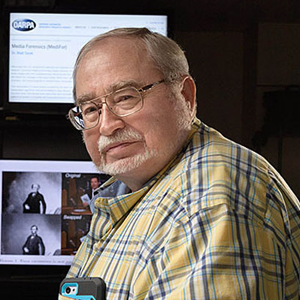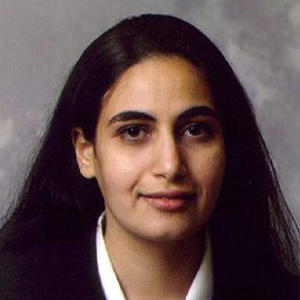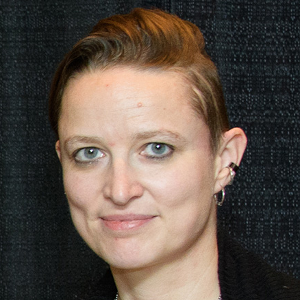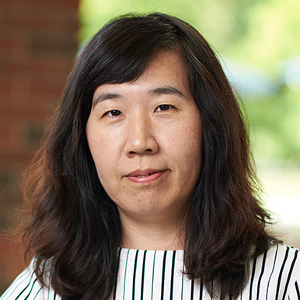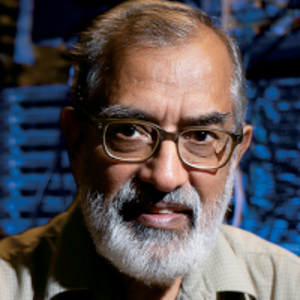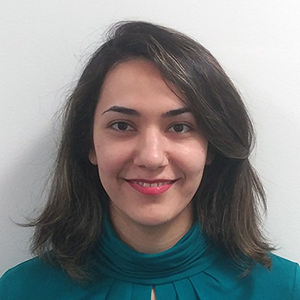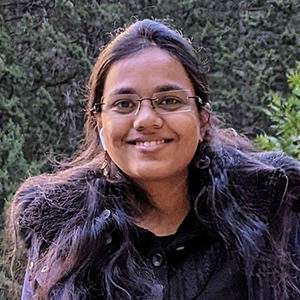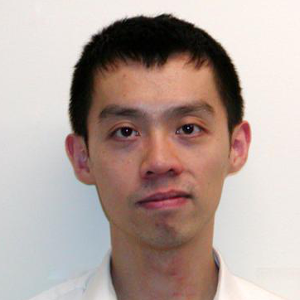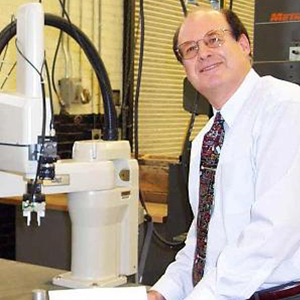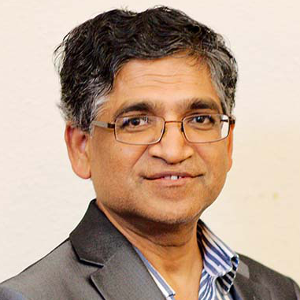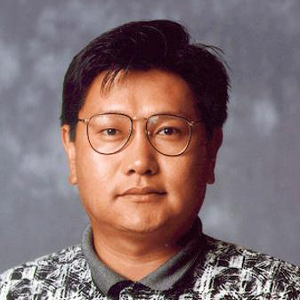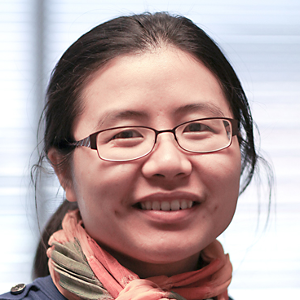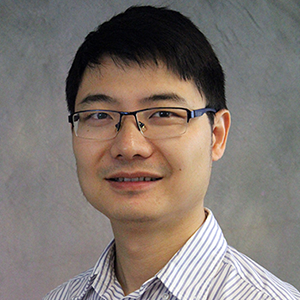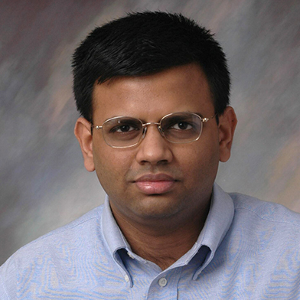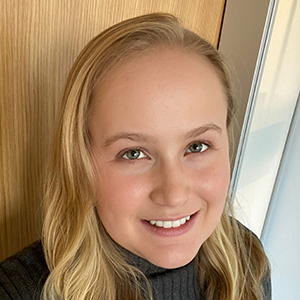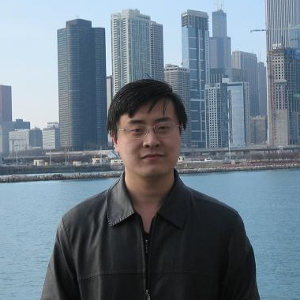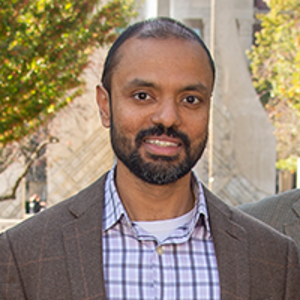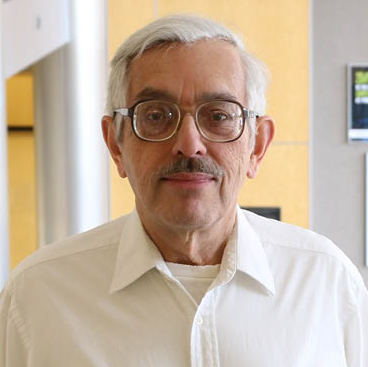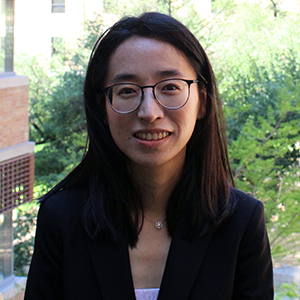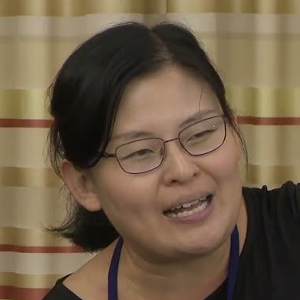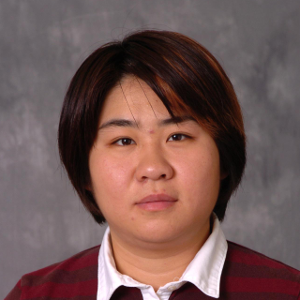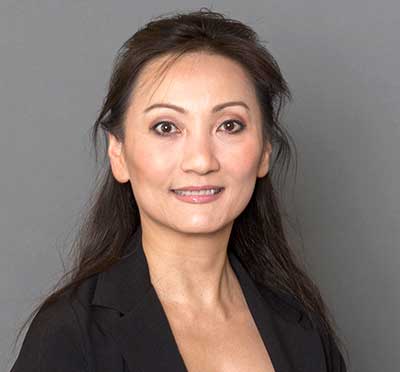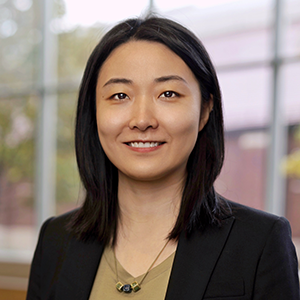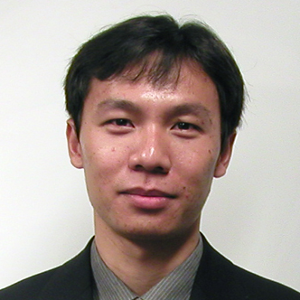Faculty & Research Staff
CERIAS involves over 158 researchers from across Purdue’s four campuses including 7 colleges and 28 departments.
Faculty by Home Departments
Aeronautical Engineering
-
Dan DeLaurentis
Design of Systems of Systems, Situational Awareness -
Carolin Frueh
Situational Awareness (satellites, debris and near earth objects, ground surveillance), Object 3D formation from image/video (shape inversion), Satellite Guidance, Navigation and Control, Astrodynamics, Sensor Tasking, Low Observability Systems, Information Quantification and Retrieval. -
Inseok Hwang
controlling multiple-vehicle systems, analysis of multiple dynamical systems which have inherently decentralized structures, path planning (computing optimal trajectories of vehicles from starting positions to destinations) and conflict detection and resolution -
Shaoshuai Mou
Multi-Agent Networks; Distributed Control; UAS Cooperation; Autonomy -
Dengfeng Sun
Systems, Control, and Optimization; Resilient Cyber-Physical Systems; Unmanned Aerial Vehicle Systems; Intelligent Transportation Systems.
Agricultural and Biological Engineering (ABE)
-
Somali Chaterji
IoT, Machine Learning, Computational Genomics
Agricultural Economics
Applied and Creative Computing
-
Mustafa Abdallah
game theory, human decision-making, anomaly detection in autonomous driving systems -
Smriti Bhatt
Cyber Security and Information Assurance, Security and Privacy in Cloud-Enabled Internet of Things (CE-IoT), Access Control and Communication Control Models and Architectures, Cloud Computing and Internet of Things (IoT) Security, Cyber Security Education, STEM Education -
Victor (Yingjie) Chen
Interactive systems, Visual Analytics, Interactive information visualization, visual provenance -
Robert Deadman
Technology use in Academic Dishonesty detection and prevention, use of virtual networks and software defined networking -
Tom Hacker
High Performance Computer, Grid Computing, Operating Systems, and Distributed Systems -
Shu Hu
Machine Learning, Digital Media Forensics, Computer Vision -
Umit Karabiyik
Digital Forensics, Cybersecurity, User and Data Privacy, Artificial Intelligence, Computer and Network Security -
Chad Laux
Lean Sustainability, Operations Excellence, Industry 4.0 -
James Lerums
Information Security, Cyber Forensics, Cyber Security Operations, Social Economic and Legal Aspects of Information Security, “Right-Sizing” Cyber Security Solutions and Implementations, Cyber Warfare, Cyber Risk, Cyber Exercises, Physical Security Exercises -
Feng Li
Network Security, Trust issues in networks, Fault-tolerance -
Tao Li
security and privacy issues in networked/mobile/distributed systems, AI and machine learning, indoor localization/navigation systems, wireless networks, mobile crowdsourcing, and mobile systems for disabled people -
Deepak Nadig
Network Security AI/ML applications to networking Cloud-native Infrastructure -
Romila Pradhan
Responsible data science, Data management, Machine learning -
Phillip Rawles
network systems administration, enterprise network management, and network application architectures -
Tatiana Ringenberg
Cyber Forensics, Social Cybersecurity, Cybercrime -
Marcus K. Rogers
Psychological Profiling, Applied Cyber-forensics, Cyber-terrorism -
John Springer
Biomedical High Performance Computing, Biomedical Information Assurance and Security -
Wenhai Sun
data security and privacy, decentralized trust and infrastructure, cyber-physical system security, and applied cryptography -
Julia (Taylor) Rayz
Natural Language Understanding, Knowledge Discovery and Representation, Computational Recognition of Salient Information in Texts, Uncertainty Management -
Marcus Thompson
Cyber Forensics -
Sudip Vhaduri
leading interdisciplinary collaborative research teams consisting of researchers from a range of disciplines, including sociology, psychology, medical sciences, laryngology, otolaryngology, speech-language pathology, communication sciences and disorders, health sciences, behavioral sciences, statistics, mathematics, and electrical engineering -
Jin Wei-Kocsis
Cyber-physical system Cyber Security Artificial Intelligence Biologically inspired intelligent system design Smart Energy Systems. Cognitive Networking Design -
David Whittinghill
visualization, games, agent-based modeling, digital anti-tampering, robotics, pharmaceuticals, and web development -
Baijian "Justin" Yang
Information Security, End system security, network security, security policies; mobile computing, distributed computing. -
Xukai Zou
Communication networks and security, Applied cryptography, Security and reliability for Grid Computing, Wireless network security
Aviation and Transportation Technology
-
Mary Johnson
Sustainability analysis in aviation, aviation emissions analysis, aviation fuels testing and analysis, general aviation data analysis, strategic justification of technologies, and enterprise performance and improvement. -
John Mott
Statistical process modeling and simulation, Aviation applications of Bayesian inference, Acquisition and analysis of distributed transportation data
Biomedical Engineering
CERIAS
-
Lorraine Kisselburgh
Communication and emerging technologies; privacy in social contexts; geolocational privacy; privacy and security policy; social networks; collaboration in networks; gender in STEM careers; digital identities -
James Lerums
Information Security, Cyber Forensics, Cyber Security Operations, Social Economic and Legal Aspects of Information Security, “Right-Sizing” Cyber Security Solutions and Implementations, Cyber Warfare, Cyber Risk, Cyber Exercises, Physical Security Exercises
Civil Engineering
-
Yiheng Feng
developing innovative modeling techniques, control strategies, and evaluation methods with a focus on the interactions between smart transportation infrastructure and connected and automated vehicles (CAVs) for the next generation transportation system -
Satish Ukkusuri
Cyber-transportation modeling, interdependent resilience analysis, network science and network games
Communication
-
Josh Boyd
Online Security Communication, Rhetorical Theory and Criticism, Public Relations, Trust. -
Sorin Matei
Collaborative implications of location aware technologies, On-line social interaction and communities. -
Howard Sypher
Software Diffusion, Communication, Time and Technology, E-Health Web Site Usability, Digital Identity
Computer and Information Science (Purdue Indianapolis)
-
Arjan Durresi
Networking & Security
Computer Information Technology and Graphics (Purdue Northwest)
-
Ricardo Calix
machine learning, automatic understanding of human behavior, biometrics, intrusion detection systems, and natural language processing -
Ashok Vardhan Raja
AI-enabled UAV Cybersecurity. Cyber Physical Systems. Security and Privacy, Machine Learning -
Manghui "Michael" Tu
Information Assurance, Digital Forensics, Distributed Computing, Sustainable Computing
Computer Science - Purdue Fort Wayne
Computer Sciences
-
Vamsi Addanki
Networking and Operating Systems, AI, ML, NLP, Theory of Computing, Algorithms, and Quantum Computing -
Daniel Aliaga
computer graphics, computer vision, visualization -
Walid Aref
Database Technologies for Emerging Applications, Spatial/Multimedia/Genomics/Sensor-Based Databases, Data Mining, Scalable Media Servers, GIS. -
Mike Atallah
Assurable Software and Architecture Identification, Authentication, Privacy Cryptology and Rights Management -
Aniket Bera
computer graphics, augmented intelligence, social robotics, autonomous agents, cognitive modeling -
Bharat Bhargava
Assurable Software and Architecture Enclave and Nework Security Identification, Authentication, Privacy -
Antonio Bianchi
Computer Security Mobile Security Android Binary Analysis CTF -
Jeremiah Blocki
Human Authentication, Cryptography, Data Privacy -
Joseph Campbell
machine learning, robotics -
Berkay Celik
design and evaluation of security for software and systems, safety, security and privacy of IoT systems. -
William Cleveland
Statistics, Data Visualization, Machine Learning, Massive Datasets, Computer Networking, Cybersecurity -
Chris Clifton
Privacy Issues in Information Management, Data Mining, Data Security, Database Support for Text, and Heterogeneous Databases. -
Benjamin J Delaware
Program synthesis and verification, Mechanized reasoning, Verified systems software, Decision procedures, Advanced modularity -
Sonia Fahmy
network security, including network monitoring, detection of distributed denial of service attacks, and firewall testing -
Pedro Fonseca
operating systems, hypervisors and distributed systems -
Christina Garman
practical and applied cryptography, namely the design and analysis of real world cryptographic systems -
David Gleich
high performance and large scale computations with a focus on enabling previously infeasible analysis of data from biology, social networks, and scientific simulations -
Aarushi Goel
research interests are in cryptography and in related areas of security and theoretical computer science. -
Dan Goldwasser
natural language processing and machine learning, with a specific interest on natural language semantics -
Ananth Grama
parallel and distributed computing architectures, algorithms, and applications -
Suresh Jagannathan
Programming Languages - Design, Implementation, and Analysis -
Changhee Jung
compilers and computer architecture with an emphasis on performance, reliability, and security -
Aniket Kate
Privacy enhancing technologies, Anonymity, Accountability, Applied cryptography, Payment networks and cryptocurrencies, Trusted computing, Distributed trust, Multi-party computation, Post-quantum cryptography -
Rajiv Khanna
Artificial Intelligence, Machine Learning, and Natural Language Processing -
Ninghui Li
Access Control, Trust Management, Security In Distributed Systems, Applied Cryptography -
Hemanta Maji
Cryptography and Algorithms; with special emphasis on Secure Computation and Information-theoretic Cryptography. -
Lorenzo Martino
Service-oriented architectures, software as a service -
Rohan Paleja
Artificial Intelligence, Machine Learning, and Natural Language Processing, Robotics and Computer Vision -
Kihong Park
scalable QoS provisioning in IP internets, self-similar and multimedia traffic control, and network security and fault-tolerance. His research is supported by grants from both government and industry, including NSF, DARPA, and CERIAS -
Chunyi Peng
Chunyi Peng's research interests are in the broad areas of mobile networking, system and security, with a recent focus on 4G/5G mobile network architecture, protocols, and technologies for emerging/demanding applications, mobile network/system security, network data analytics, and mobile sensing and computing systems. -
Sunil Prabhakar
issues in large-scale, distributed applications such as multimedia databases, data warehouses, and digital libraries -
Alexandros Psomas
Artificial Intelligence, Machine Learning, and Natural Language Processing -
Bruno Ribeiro
Data Mining, Network Science, Computer Networks, Statistical Models & Inference -
Tiark Rompf
Applied and fundamental aspects of programming languages and compilers: language design, program analysis, program transformation, program generation and synthesis, type systems, semantics. PL technology in data management, machine learning, and AI. -
Abulhair Saparov
Computational Science and Engineering, Artificial Intelligence, Machine Learning, and Natural Language Processing, Bioinformatics and Computational Biology, Distributed Systems -
Mary Anne Smart
privacy and human-computer interaction -
Gene Spafford
Executive Director Emeritus, CERIAS. Security policy, intrusion detection and response, security architecture, computer forensics, vulnerability analysis, counterintelligence/counterespionage -
Wojciech Szpankowski
analysis of algorithms, data compression, information theory, analytic combinatorics, random structures, networking, stability problems in distributed systems, modeling of computer systems and computer communication networks, queueing theory, and operations research -
Lin Tan
software engineering, software dependability, defect detection and repair, and software text analytics -
Mohammadkazem Taram
microarchitectural attacks, high-performance mitigations, and architecture support for security and privacy -
Dave (Jing) Tian
embedded systems, operating systems, and trusted computing -
Samuel Wagstaff
cryptography, parallel computation, and analysis of algorithms, especially number theoretic algorithms. -
Hanshen Xiao
privacy, adversarial robustness, and copyright protection -
Dongyan Xu
Virtualization and security, Cloud computing, Malware defense, Cyberinfrastructure, Distributed Systems -
Ruqi Zhang
AI safety and security -
Tianyi Zhang
Human-Computer Interaction, Human-AI Interaction, Software Engineering, Mining Software Repositories, Program Synthesis, Software Evolution -
Xiangyu Zhang
software provenance, malware defense -
Yongle Zhang
Artificial Intelligence, Machine Learning, and Natural Language Processing, Software Engineering, Networking and Operating Systems,Distributed Systems -
Vassilis Zikas
Cryptography, Computer Security, Blockchain Technologies, Cryptocurrencies, Game Theory, Distributed Computing
Electrical and Computer Engineering
-
Saurabh Bagchi
Dependable distributed systems, Network security, Reliable high performance computing, Embedded wireless networks, Bioinformatics. -
Peter Bermel
Several applications of nanophotonics, including photovoltaics, lighting, thermal physics, sources, detectors, and switches. -
Christopher Brinton
Machine Learning, Artificial Intelligence -
Xiaoqi Chen
Cloud security, Communications security, Cryptology -- hardware, software, algorithms, Cyberphysical systems and IoT, Network Security, Operating Systems, Privacy, Security of AI/ML, Web Services -
Jamie Davis
safety and security of software-centric systems -
Edward Delp
Digital forensics, steganography, image and video compression, multimedia security, medical imaging, multimedia systems, communication and information theory. -
Jing Gao
Data mining and Machine Learning -
Arif Ghafoor
parallel and distributed computing, and multimedia information systems -
Zahra Ghodsi
Trustworthy machine learning, applied cryptography -
Vijay Gupta
Communications, Networking, Signal and Image Processing, Power and Energy Systems, Automatic Controls -
David Inouye
Deep distribution alignment Generative probabilistic models Explainable AI Invertible deep learning Iterative/Local learning Distribution shift -
Younghyun Kim
embedded computing systems, internet-of-ihings, system-on-chip and VLSI, low-power systems -
James Krogmeier
Signal processing for wireless communications, adaptive filtering and equalization, synchronization, modulation and coding for nonlinear channels, intelligent transportation systems -
Milind Kulkarni
My research interests lie in the areas of programming languages, compilers and systems. Specifically, I am interested in various language features, compiler techniques and run-time system support that will be necessary to unlock the potential of emerging, complex computation platforms such as multicore processors, heterogeneous architectures, sensor networks and distributed systems. -
David Love
Communications Theory, Communication Systems with Feedback, Coding Theory, Information Theory, Wireless Communications, Applications of Subspace Packings -
Yung-Hsiang Lu
Yung-Hsiang Lu is a professor at the School of Electrical and Computer Engineering and Department of Computer Science. His research areas include computer vision, cloud computing, and big data. His research team is building a software infrastructure analyzing the vast amounts of video data from network cameras deployed worldwide. He is an ACM distinguished scientist and speaker. He is the scientific adviser and a co-founder of Perceive Inc, a technology startup for video analytics. He received PhD from Stanford University. -
Aravind Machiry
Program analysis, vulnerability detection, IoT, Trustzone, Binary Analysis, general System Security, machine learning -
Suranjan Panigrahi
Intelligent decison support systems using artificial intelligent techniques including machine learning Innovative products/processes for social challenges in low resource settings via interdisciplinary team approach Smart sensors/sensing systems for automation, quality control, detection and diagnosis applications -
Philip Paré
Mathematical modeling of dynamic networked systems, e.g. epidemiological, biological, economic systems, infrastructure networks, social networks, etc.; stability analysis, control, and identifiability of such systems; model reduction of dynamic systems and clustering; biological applications of control theory -
Xiaokang Qiu
programming systems, including program logics, decision procedures, automated deduction, program verification, and program synthesis -
Vijay Raghunathan
wireless and ad hoc networks, sensor networks, intrusion detection, reliability -
Sanjay Rao
Peer-to-peer System Design, Cloud systems, Security issues in system migration -
Shreyas Sen
Sensing and Communication Circuits/Systems, Energy-harvested Sensor nodes for Internet of Things (IoT), Analog/RF, Wireless, Security, Human body-coupled Communication -
Jeffrey Siskind
Artificial Language, Cognitive Science, Machine Vision, Computational Linguistics, Computer Systems (including Visual Event Perception, Computational Models of Child Language Acquisition) and High Performance Compilation Strategies for LISP. -
Lu Su
I am broadly interested in the general areas of Internet of things, cyber-physical systems, wireless, mobile, and crowd sensing systems, big data and cloud computing, data mining and machine learning, as well as security and privacy. -
Shreyas Sundaram
Analysis, design, and control of resilient and secure large-scale networked systems -
Santiago Torres-Arias
IoT Security, Software Supply Chain Security, Cloud Security, Applied Crypto -
T.N. Vijaykumar
computer architecture with emphasis on microarchitectures of general-purpose, high-performance microprocessors. -
Chih-Chun Wang
Network coding, Coding Theory, Information and Communication Theory, Signal Processing, Control Theory -
Jingbo Wang
software engineering and formal methods
Electrical and Computer Engineering (Purdue Northwest)
-
Quamar Niyaz
Computer & Network Security, Applied Machine Learning, Cybersecurity Education, Big Data
Engineering Technology
-
Nathan Hartman
Long-term archival (LOTAR) for CAD data Model-based definition Graphics Standards - Grant Richards
English
-
Michael Salvo
Ethics
History
-
Ekaterina Babintseva
history of science and technology and the intersections of human sciences and computing
Industrial Engineering
-
Vaneet Aggarwal
Cloud Computing, Video Streaming, Communications and Networking, Machine Learning, and Smart Grids. -
Barrett Caldwell
Situational awareness, privacy, critical infrastructure protection, human factors -
Shimon Nof
computer-supported integration and collaboration of distributed work -
Brandon Pitts
Cognitive ergonomics, Human-automation interaction, Multimodal/multisensory information processing, Adaptive displays, Aging and technology - Jason Reinhardt
-
Yu She
Robotics, Mechanism Design, Tactile Perception - Young-Jun Son
-
Wenzhuo Wu
Nanomanufacturing, Self-powered Nanosystems, Renewable Energy, Human-integrated Technologies, Smart sensors and electronics -
Yuehwern Yih
health supply chains, machine learning and artificial intelligence
Linguistics
-
Victor Raskin
Computational linguistics, Ontological Semantics, Meaning-based search, Steganography
Management
-
Bradley Alge
Human/Technology Interaction, Employer/Employee Rights, Strategic human resources, Individuals as Self-Regulators -
Alok Chaturvedi
Homeland Security Simulations (e.g., "Measured Response"), Synthetic Environments, Tera-Scale Grid Computing, Computational Models of Human Behaviors, Enterprise Systems, Artificial Intelligence Applications in Manufacturing, Machine Learning, and Visualization of Business Data. -
Roy Dejoie
Social/Ethical/Legal Issues, Group Support Systems, Collaborative Technologies
Math
-
Guang Lin
Big data analysis and statistical machine learning Predictive modeling and uncertainty quantification Scientific computing and computational fluid dynamics Stochastic multiscale modeling -
Tzuong-Tsieng Moh
Public Key Cryptography, Jacobian Conjecture, and Resolution of Singularities
Mechanical Engineering
-
Guang Lin
Big data analysis and statistical machine learning Predictive modeling and uncertainty quantification Scientific computing and computational fluid dynamics Stochastic multiscale modeling -
Jitesh Panchal
Decision making in engineering design; Secure Co-Design; Mechanism design for systems engineering; Complex networks; Open innovation; Crowdsourcing.
Nuclear Engineering
-
Hany Abdel-Khalik
Validation and Uncertainty Quantification; Big Data Analytics and Data Assimilation; Cyberattack-resilient Control Systems; LWR Computational Reactor Physics; -
Lefteri Tsoukalas
intelligent systems and control methodologies
Philosophy
Political Science
Statistics
- Jordan Awan
-
William Cleveland
Statistics, Data Visualization, Machine Learning, Massive Datasets, Computer Networking, Cybersecurity -
Guang Lin
Big data analysis and statistical machine learning Predictive modeling and uncertainty quantification Scientific computing and computational fluid dynamics Stochastic multiscale modeling -
Mark Daniel Ward
Analysis and Design of Algorithms and Data Structures, Analytic Combinatorics, Applied Probability, Asymptotics, Data Compression, Game Theory, Information Theory, Pattern Matching, Probability Theory, Probability and Analysis, Random Structures, Random Walk, Symbolic Computation, Tree Structures -
Bowei Xi
Computer Science and Statistics (Data Mining, Machine Learning, Computer Networks, Massive/High Dimensional Data, Computational Methods for Statistics
Technology Leadership & Innovation
-
Mesut Akdere
Human Resource Development Leadership Development STEM Workforce Development -
Sabine Brunswicker
social analytics & social data visualization, social computing, smart energy & blockchain -
Stephen Elliott
Biometrics, Signature Verification, Mobile Computing, Electronic and Mobile Commerce Logistics and Supply Chain Management



